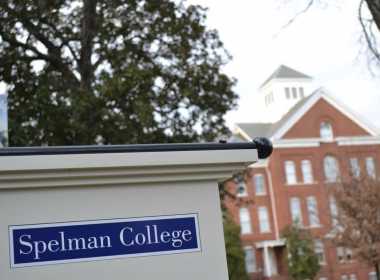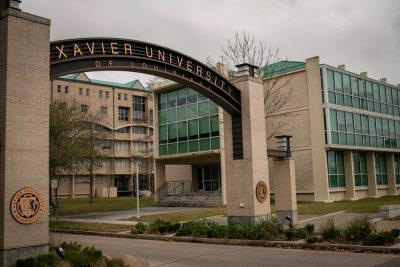
Spelman College president Mary Schmidt Campbell will join other UNCF HBCU presidents on Capitol Hill today, Feb. 27, for a meeting with members of Congress and the Trump administration. The goal of her visit, as stated in her letter to the Spelman community is to “communicate to the White House, members of Congress, cabinet members, and agency staff about the spectacular outcomes of the HBCU community, Spelman among them, as well as advocate for the continuation of federal funds and federal policies that support Spelman students, faculty, staff and programming.”
Here’s the letter Campbell wrote to the faculty, staff and student body:
Dear Spelman Community,
I write to let you know of an upcoming visit I’ll be taking to Washington, D.C. next week. On Monday, Feb. 27, I plan to visit the White House along with 31 other UNCF presidents of historically Black colleges and universities. While in Washington, I, along with the other HBCU presidents, plan to meet with available members of Congress and cabinet members. I would like the Spelman community to know how I am thinking about this visit and what I hope to accomplish.
Spelman College, as is the case with most American colleges and universities, relies on federal funds to support a range of programs that impact individual students, faculty research and institutional educational priorities. Those funds are distributed nationally on the basis of federal policy – policy that is shaped by the White House, federal agencies and our congressional leaders. Listed below is a sampling and summary of the funding programs that are supportive of Spelman. All of these programs are impacted by federal decision making:
- Pell Grants: Pell Grants help defray the cost of college for over half of the students enrolled at Spelman and those grants come from the U.S. Department of Education. Spelman students receive $36 million annually in these federally-funded grants.
- Faculty Research Grants: Individual faculty members at Spelman support their research with grants from a range of federal agencies, including, but not limited to, the National Endowment for the Humanities, the National Science Foundation, the National Institutes of Health, the Department of Energy and the Department of Education. Faculty research, in turn, often supports the undergraduate research of our students. Spelman faculty members receive an average of $5-$7 million per year in federal research funding.
- Title III Funding: The Department of Education supplies Spelman with roughly $3 million a year in Title III funding that supports some STEM faculty, aspects of the College’s technology staffing and infrastructure, as well as our teaching and learning centers.
- HBCU Federal Funding: In addition to federal funds available for all educational institutions, HBCUs are the recipients of a long list of federal funds designed specifically for this category of educational institution.
- Tax Code: Tax incentives, on the basis of current tax law, encourage private philanthropy and donations to all non-profit colleges and universities, including Spelman.
One of my responsibilities and roles as Spelman’s president is to ensure ongoing federal support of our students, faculty and staff, and the College’s overall mission. My goal, with this visit, is to communicate to the White House, members of Congress, cabinet members, and agency staff about the spectacular outcomes of the HBCU community, Spelman among them, as well as advocate for the continuation of federal funds and federal policies that support Spelman students, faculty, staff and programming. There are issues and programs, aside from funding, such as the immigration ban and policies related to diversity and inclusion, that impact Spelman’s values and principles. I plan to address these issues as well during our meetings in Washington.
I will keep you apprised of developments in the months ahead.
















